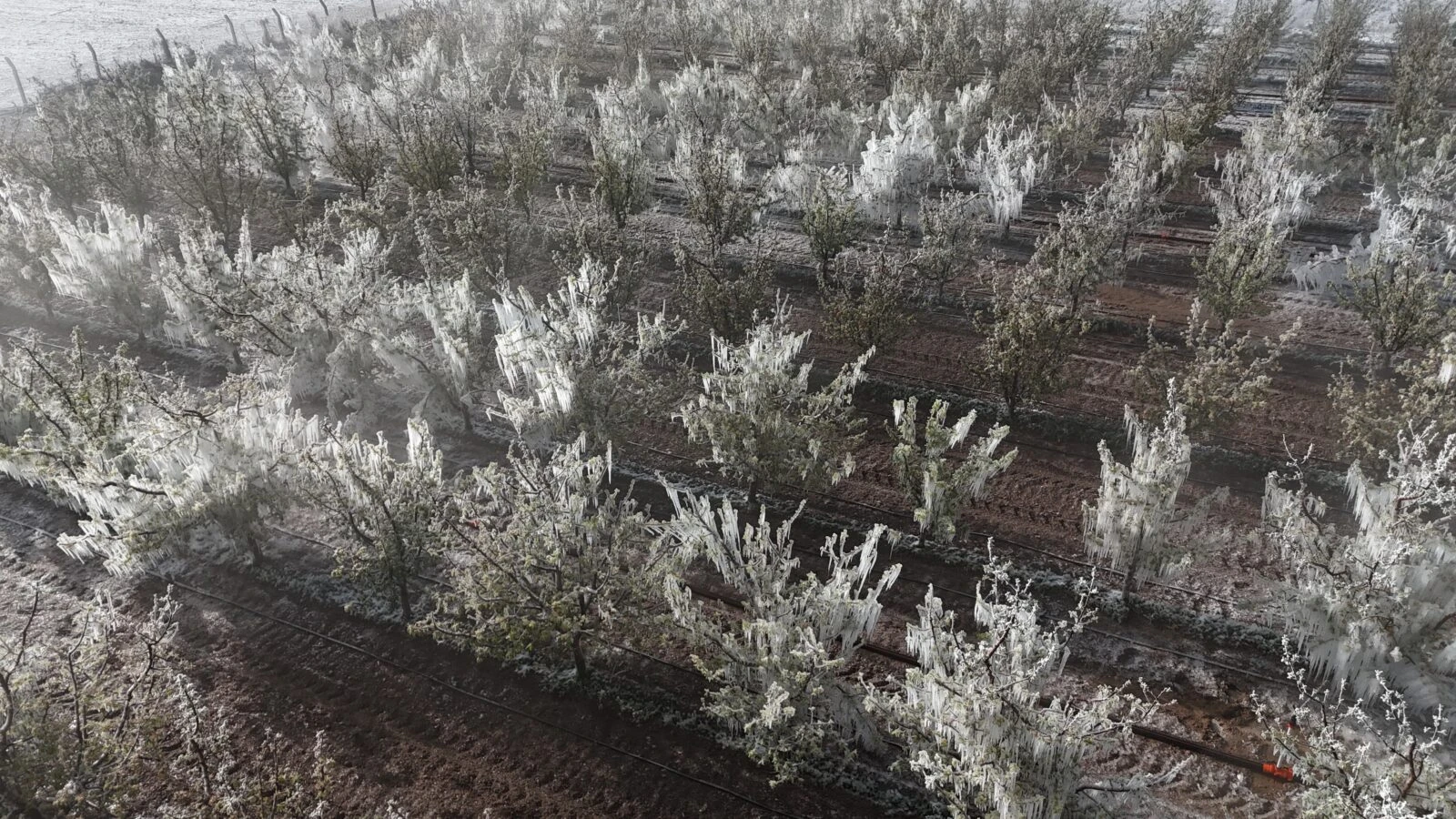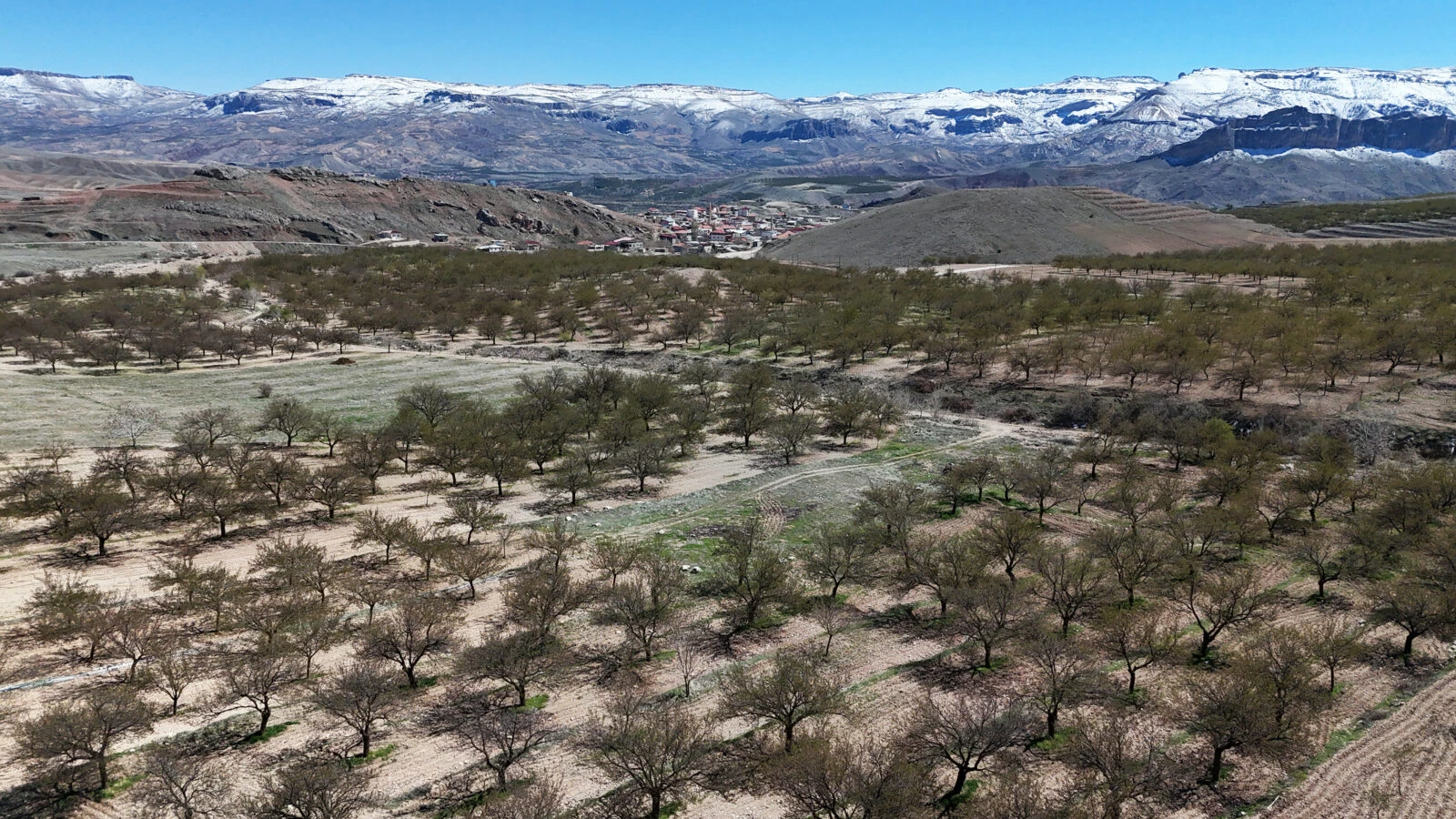Decade’s harshest frost devastates Türkiye’s farmlands, causing widespread crop losses
 Apple orchards are being damaged by cold weather and agricultural frost in Nigde, one of Türkiye’s key apple-producing regions, on Apr. 12, 2025. (AA Photo)
Apple orchards are being damaged by cold weather and agricultural frost in Nigde, one of Türkiye’s key apple-producing regions, on Apr. 12, 2025. (AA Photo)
Türkiye is currently grappling with one of the most severe agricultural frosts in its modern history, as a sudden and dramatic drop in temperatures has triggered widespread damage to crops and farmland across nearly every region of the country.
The abrupt shift in weather followed an unusually warm spell, with daytime temperatures reaching up to 20 degrees Celsius (68 degrees Fahrenheit) in many provinces earlier in the month. However, within just a few days this week, conditions reversed sharply, with average temperatures dropping to around 5 degrees Celsius (41 degrees Fahrenheit), and in some regions, falling well below freezing. This sudden return to winter-like conditions, just as many crops were entering critical growth stages, proved devastating for farmers.

The frost has primarily affected fruit trees, vineyards, and early vegetable fields, particularly in central and eastern provinces, where the cold was most intense. While many farmers have rushed to take precautionary measures, such as burning straw, using wind machines, or covering plants, these efforts have not been enough to prevent extensive losses in many areas.

Some producers have resorted to harvesting whatever they could before further damage set in.
Most severe frost in Türkiye since 2014
Türkiye’s Agriculture and Forestry Minister Ibrahim Yumakli addressed the agricultural damage caused by the recent cold snap in a statement shared in his post on X, offering updates on the ministry’s response efforts.
He said the country faced abrupt temperature drops throughout March and April, particularly over the past three days, which brought frost, snow, and hail. In some regions, temperatures plunged to as low as minus 15 degrees Celsius (5 degrees Fahrenheit)—the lowest levels recorded in three decades.

Yumakli compared the current situation to the 2014 agricultural frost, saying the damage is among the most severe in Türkiye’s recent history. He noted that teams from the ministry have been working around the clock in the field to support producers and assess the damage.
“All of our teams are continuing damage assessments,” he said, adding that farmers affected by frost and hail can report losses to local agricultural directorates.
Reaffirming the government’s support for farmers, Yumakli pledged continued assistance to ensure production continuity following what he called “one of the largest frost events in years.”
He concluded by extending well wishes to affected producers and expressed a hope that Türkiye would be spared from future disasters.



